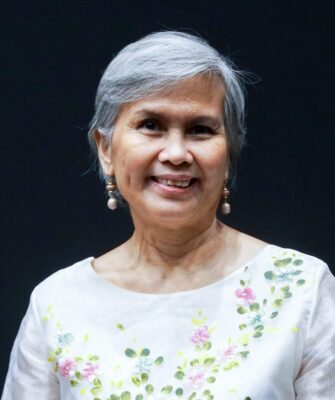Plastic Free July: We are drowning in plastic, and we need to catch up fast
By Atty. Gloria Estenzo Ramos, Oceana Vice President
Press Release Date: July 25, 2022
Just last month, Canada took a huge leap and issued a ban on the manufacture and import of six categories of single-use plastics by the end of the year. Likewise, California recently enacted the boldest plastic source reduction policy requiring a steep reduction in the amount of single-use plastic packaging produced in the state by 2032.

Not many may realize it, but we are drowning in plastics, with global plastic production now at 400 million tons per year with highly underestimated impacts to our natural ecosystems and people.
The Philippines has a forward-looking Republic Act 9003 or the Ecological Solid Waste Management Act in place, but the National Solid Waste Management Commission (NSWMC) has allowed this progressive law to languish in the “sickbed of non-compliance” as a dear friend puts it, for more than two decades. Unaware of the hidden cost of plastic, the government’s inaction has resulted in the notorious sachet economy and the overwhelming magnitude of the plastic crisis that we face today.
We could have been the model country had we faithfully abided by the law. This is gravely concerning considering that we too have been identified to be one of the most vulnerable to the impacts of climate change. Nearly every piece of plastic begins as a fossil fuel, and greenhouse gases are emitted at each of each stage of the plastic lifecycle: 1) fossil fuel extraction and transport, 2) plastic refining and manufacture, 3) managing plastic waste, and 4) plastic’s ongoing impact once it reaches our oceans, waterways, and landscape.
With a solid waste management system that is unable to keep up with the surge of waste, plastic has long been creeping into the ocean, in the food we eat, the water we drink, and the air we breathe. Even the most isolated of marine protected areas are being breached by plastic waste and the artisanal fisherfolk, one of the poorest sectors in society, lament catching more plastics than fish in their nets. We are likely already unconsciously ingesting microplastic, with recent studies raising alarms on the presence of microplastics in human lungs and blood.
In a waste assessment and brand audit report by the Global Alliance for Incinerator Alternatives (GAIA) in 2019, the average Filipino uses 174 pieces of plastic shopping bags annually. Moreover, plastic bags, re-affirmed by a group of waste pickers we reached out to in Cebu City recently, can’t be recycled. The situation today is far worse due to the surge of pandemic-related waste.
Oceana, along with its partners from the Break Free from Plastics coalition, recommends the following single-use plastics to be banned: plastic straws, plastic stirrers, sachets, plastic cups, cutlery, plastic bottles, Styrofoam/polystyrene containers, thin take-out containers, labo bags and plastic bags. Imagine the number of plastics we would be able to prevent from reaching the ocean and our planet if we use eco-bags and baskets made from indigenous materials instead.
But more than our collective efforts as citizens to adopt a plastic-free lifestyle, the bigger challenge lies in ensuring that RA 9003 is effectively carried out.
It is highly encouraging that the new President aired his concern over the worsening plastic crisis in his inaugural address to the Filipino people. We expect that this will be translated into official directives with specific measures and timelines to ensure that destructive single-use plastics are banned from the source.
With new faces in the National Solid Waste Management Commission, can we trust the body to prioritize the neglected mandate of stopping pollution at the source and perform all their mandates?
It is our hope that the Philippines under the Marcos administration will do what the previous administrations have utterly failed to do – have the sense urgency to step up in the determined and genuine implementation of RA 9003 and address the banning of single-use plastics being a major source of the plastic pollution.
Hope the burgeoning plastic pollution and human-induced pressures facing our ocean merit the attention that they deserve in the President’s first State of the Nation Address.
Political will is needed now more than ever.
